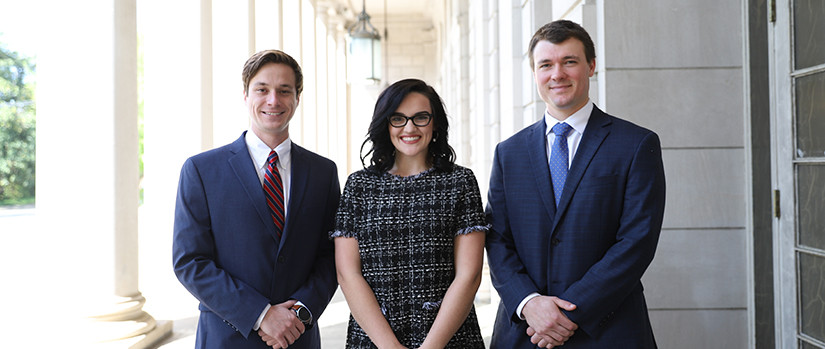
Externships are an academic undertaking where students should have the opportunity to develop their professional legal skills including research, analysis, and drafting. There is a course component connected to the externship. The purpose of the class is to review what the students have been learning and doing at their placements as well as for the students to learn the relevant law so they can build upon their experiences. Students receive academic credit for the work they do at their placements as well as in the classroom.
Attorney supervisors are a critical part of the educational experience of the student externs. Through your supervision and guidance, students develop skills that will contribute to the practice of law. The experience should be rewarding for both the attorney supervisor and the student. We realize that it is a substantial time commitment for you and we truly appreciate your assistance in making this a rewarding experience. To ensure this takes place here are some policies and guidelines to consider.
- Externships are unpaid opportunities. Externs may not receive compensation other than reimbursements for incidental expenses, e.g. mileage for travel pursuant to state or federal requirements.
- Externs receive work assignments, supervision, and feedback from an attorney supervisor.
- Student externs must complete at least 80% of their externship assignments on site. Virtual or hybrid externships require preapproval.
Attorney supervisors should ensure that basic substantive information is provided to the extern at the beginning of the externship. An orientation should include an overview of the work and the mission of the agency, organization, or court and the role of the attorney there; guidelines as well as policies and procedures including the expectation of professional appearance; introductions to other members of the office with whom the student will interact; and a tour of the facility.
Attorney supervisors should ensure that externs are provided with adequate work space as well as materials to do substantive work, e.g. computer, phone, etc. We recognize that office space is at a premium. Externs should have access to a desk and a space that provides them the opportunity to focus on their work assignments.
- Externship assignments should be part of the office’s regular workload.
- Assignments should be meaningful work that will broaden the student’s skill set.
Externs should be included in discussions of strategy and implementations of policies that arise out of research, analysis, writing or other work in which the extern has played a significant part. - Extern should be given opportunities to observe their attorney supervisor as much as practicable. Examples include: legal proceedings such as trials, motion practice, depositions; discussions with attorneys, clients, judges, legislative committees, etc.
- The work assignments are reasonable in terms of the extern’s ability to work in the office.
- Students participating in the spring or summer externship courses receive academic credit for working 8 hours per week for 13 weeks.
- Students participating in the summer externship course receive academic credit for working 30 hours per week for 7 weeks.
- Administrative tasks (filing, copying documents, running errands, etc.) should be kept to a minimum.
The attorney supervisor should have regular contact with the student extern throughout the course of the semester.
-
- Develop Work Plans: The attorney supervisor should work with the student to develop goals for the externship experience and form a work plan that will enable the student to meet the goals.
- Weekly Meetings: The attorney supervisor should meet with the student extern at least once a week to provide general supervision, assignments and feedback. (The student may also work with and be supervised by other individuals at the placement provided the attorney supervisors maintains this regular contact.)
- Evaluation: The attorney supervisor should provide ongoing feedback to the student including constructive discussion of the student’s work. The attorney supervisor must complete an evaluation of the student’s work. Fifty percent of the student’s grade for the course is based on this evaluation.
| Forms |
|---|
Contact Us

